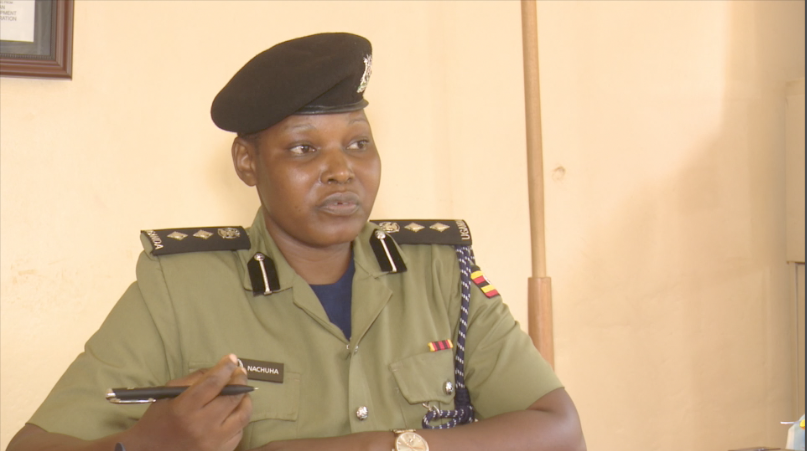Prime
Must know driver duties for safe driving

What you need to know:
By following traffic laws, avoiding distractions, practising responsible speed management, and fulfilling other essential responsibilities, drivers contribute to a safer and more enjoyable driving experience for everyone on the road
In his teachings about defensive driving basics and skills, Charles Wamala, a defensive driving trainer, notes that the responsibilities of a driver on the road range from the vehicle they are driving, the passengers they are carrying, the cargo or load in the vehicle, road users, law enforcers and the expected discipline, among others.
Wamala, while speaking recently during a refresher training organised by Victoria Motors on safe driving and basic vehicle care for corporate lease clients said, “As a professional driver, you should never fight fatigue. The body can command the eyes to stay awake but the brain will switch off. When you feel tired, you must find time to rest, and only start driving again when you are alert. No amount of energy drinks will keep you alert or awake when the brain is in a different mode. The brain is the running mechanism or engine of the human body.”
The aspect of safe driving and basic car care should be upheld by every driver and company. The effects of not having these skills, such as road crashes, do not segregate or select who will be victimised. Remember, road safety is everyone’s responsibility.
Responsibility for the vehicle
It is your responsibility as a driver to understand all defects of the vehicle regardless of whether it is privately owned or belongs to an organisation. You must have some basic mechanical knowledge, not necessarily on how to open an engine but enough to understand aspects such as fixing a flat tyre or how to diagnose the mechanical problem of a car from the sound or smell it is producing.
“Mechanical knowledge allows you detect a problem without going to the garage. If you cannot repair the problem, then report it to the car owner or fleet manager. Check the legal status of the vehicle and ensure it has a valid third party. Also, check the necessities every vehicle must have such as a first aid box, car jerk, spanners and fire extinguisher before it goes on the road and know how to use them,” Wamala says.
To be more professional, be critical of your car. You can have a third-party sticker but when the details do not align with what you are supposed to have. Have a record of what you are doing on the vehicle so that if it needs a reminder, repair, update, renewal or replacement, it is done immediately.
Responsibility to passengers
For easy management, passengers are broken down into categories since some are difficult to manage. Some could be sick, or disabled, while others could be old.
“You cannot push a passenger who is old or blind out of the vehicle because you are in a rush to reach your destination. If they are to disembark from the vehicle, it should be in a safe place and not anywhere that puts your life and theirs at risk,” Wamala advises.
Responsibility to cargo
Brian Agaba, a long-distance driver, says it is every driver’s responsibility to understand the nature and value of cargo in the vehicle they drive. If it is sensitive, do not simply discuss it with anyone or park the car anywhere. Cargo such as machines and computers could be valuable to robbers or thieves.
“Cargo should not be damaged by things such as dust or water. A tarpaulin and rope are some of the things to have in your car to cover and tighten cargo so that it reaches its destination safely. Sometimes, one may be carrying cargo such as paint that is flammable and some that is perishable such as foodstuff. There is also cargo that is delicate and breakable such as cakes and glassware and construction tiles,” Agaba says.
“Understanding the kind of cargo you are carrying determines your driving speed and the status in which it should be delivered. If you are delivering the cargo over a long distance, plan to make stopovers in safe places and check if it is still intact. To build trust with your client, make sure the cargo is in the same quantity as when you picked it,” he adds.
Responsibility to other road users
In Uganda, road users, especially pedestrians and motorcyclists do not have designated lanes and as such, must share the same road space with vehicles. Therefore, as a driver, one must be careful since you are occupying a lot of space and are licensed to use the road. Understand that road users also have categories; some understand road rules while others do not. The duty of protection and care awaits every driver on the road.
Responsibility to law enforcers
Driver responsibility to law enforcers is mainly a communication aspect on the road. Law enforcement does not necessarily mean traffic police officers but extends to road signs and markings. Understand how the road is communicating to you and comply.
For example, do not overtake in corners because you could be involved in a head-on collision. Remember also that traffic police are doing their job and it is not true that every time they stop you on the road it is because of a traffic offence.
Adapting to weather conditions
According to kiidu.com, weather conditions add an extra layer of complexity to driving responsibilities. So, as a driver, you must learn safe driving practices in rain, and fog, emphasising the need to adjust speed, follow distances, and use headlights appropriately. Responsible driving requires adaptability to the ever-changing elements.
Driving sober
Driving under the influence is not only illegal but also one of the most irresponsible actions on the road. If someone drives drunk and survives a crash that injures or kills other people, they must live with the consequences. That emotional burden can be worse than any bodily harm; however, the physical perils of drunk driving are immense too. Impaired driving can cause accidents that lead to paralysis, disfigurement, brain damage, and death.




